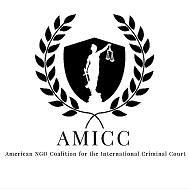 |
| Sec. of State Hillary Clinton speaks at the UNSC about US commitment to end gender violence. UN Photo/Paulo Filgueiras |
Yesterday, the Security Council and several high ranking state ministers from around the globe met together in New York to discuss the successes and failures of this resolution over the past 10 years. The pervasive sexual violence and culture of impunity in the Democratic Republic of the Congo was label as the biggest failure. All countries recognized the need to end impunity in the DRC if we are to ever establish peace. The delegate from the United Kingdom concluded that “lasting peace cannot exist without justice for women”.
While the resolution recalls the possibility of using the International Criminal Court (ICC) as a mechanism to end impunity, the Court had not yet been operating at the time the resolution was passed in 2000. A few nations mentioned their work with the ICC but only one told specifically how it was using the ICC as a way to end gender crimes. The delegate from Mexico affirmed the importance of the ICC in ending gender based and sexual violence. The delegate from Austria explained how leaders from his country were working to create national standards for gender crimes that coincided with the standards found within the Rome Statue. He continued to explain that the international community must use every tool at their disposable if they are to end violence against women.
The ICC is mandated to end the culture of impunity and provide accountability to victims of atrocity crimes. It is uniquely equipped to try gender based crimes such as discrimination and sexual violence as the first court to define rape, other forms of sexual violence, and persecution as crimes against humanity. Currently, there are two trials at the court that are prosecuting individuals for gender based crimes. Jean-Pierre Bemba , the former president of the Central African Republic, is facing two counts of rape and Germain Katanga and Mathieu Ngudjolo Chui are jointly facing two counts of rape and two counts of sexual slavery. In addition to these trials, there are arrest warrants for six other individuals for alleged rapes, sexual enslavement, and other outrages on human dignity.


No comments:
Post a Comment